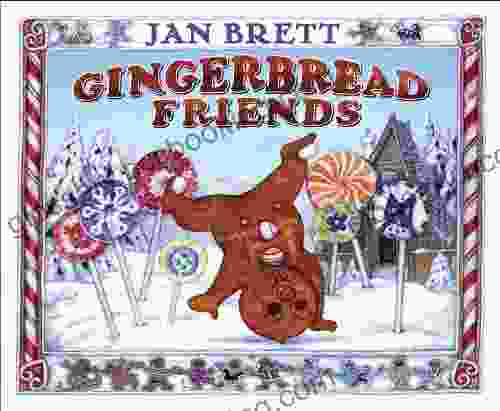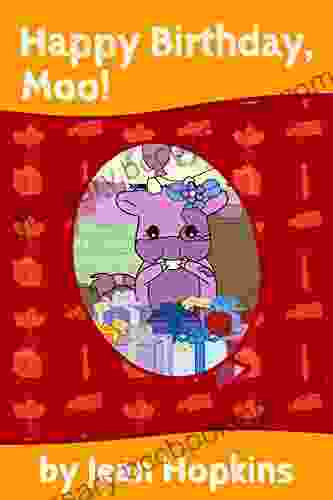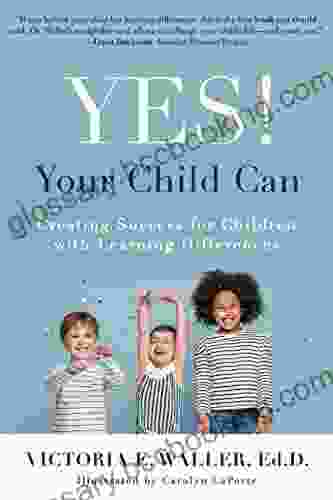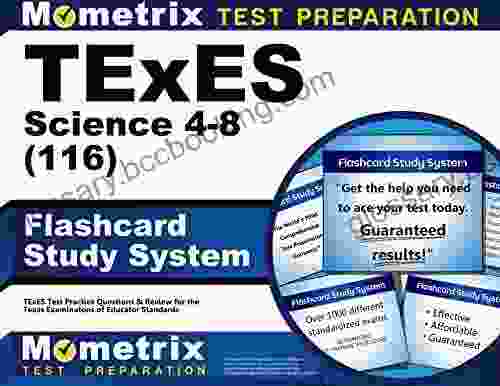Creating Success for Children with Learning Differences: A Comprehensive Guide for Parents and Educators

Every child is unique, and every child learns differently. Some children, however, have learning differences that make it difficult for them to succeed in traditional educational settings. These children may struggle with reading, writing, math, or other academic areas. They may also have difficulty paying attention, staying organized, or behaving appropriately in school.
4.7 out of 5
| Language | : | English |
| File size | : | 4699 KB |
| Text-to-Speech | : | Enabled |
| Screen Reader | : | Supported |
| Enhanced typesetting | : | Enabled |
| Word Wise | : | Enabled |
| Print length | : | 250 pages |
If you are the parent of a child with learning differences, you may feel overwhelmed and unsure of how to help your child succeed. The good news is that there is help available. With the right support, children with learning differences can overcome their challenges and achieve their full potential.
This comprehensive guide will provide you with everything you need to know about learning differences, including:
- What are learning differences?
- What are the different types of learning differences?
- How are learning differences diagnosed?
- What are the best ways to support children with learning differences?
- How can you create a successful learning environment for your child?
This guide is written by experts in the field of learning differences, and it is full of practical advice and strategies that you can use to help your child succeed. If you are the parent of a child with learning differences, this guide is a must-read.
What are learning differences?
Learning differences are a group of conditions that affect a child's ability to learn in the same way as their peers. These conditions can range from mild to severe, and they can affect a child's ability to read, write, math, or other academic areas. Learning differences can also affect a child's attention, organization, and behavior.
There are many different types of learning differences, and each child with a learning difference will have their own unique set of strengths and weaknesses. Some of the most common types of learning differences include:
- Dyslexia: Dyslexia is a learning difference that affects a child's ability to read and write. Children with dyslexia may have difficulty recognizing words, spelling words, and understanding what they read.
- Dyscalculia: Dyscalculia is a learning difference that affects a child's ability to do math. Children with dyscalculia may have difficulty understanding numbers, solving math problems, and remembering math facts.
- Attention deficit hyperactivity disFree Download (ADHD): ADHD is a learning difference that affects a child's ability to pay attention, stay organized, and control their behavior. Children with ADHD may be easily distracted, impulsive, and hyperactive.
- Autism spectrum disFree Download (ASD): ASD is a learning difference that affects a child's ability to communicate, interact with others, and understand the world around them. Children with ASD may have difficulty making eye contact, understanding social cues, and engaging in imaginative play.
What are the different types of learning differences?
There are many different types of learning differences, and each child with a learning difference will have their own unique set of strengths and weaknesses. Some of the most common types of learning differences include:
- Dyslexia: Dyslexia is a learning difference that affects a child's ability to read and write. Children with dyslexia may have difficulty recognizing words, spelling words, and understanding what they read.
- Dyscalculia: Dyscalculia is a learning difference that affects a child's ability to do math. Children with dyscalculia may have difficulty understanding numbers, solving math problems, and remembering math facts.
- Attention deficit hyperactivity disFree Download (ADHD): ADHD is a learning difference that affects a child's ability to pay attention, stay organized, and control their behavior. Children with ADHD may be easily distracted, impulsive, and hyperactive.
- Autism spectrum disFree Download (ASD): ASD is a learning difference that affects a child's ability to communicate, interact with others, and understand the world around them. Children with ASD may have difficulty making eye contact, understanding social cues, and engaging in imaginative play.
How are learning differences diagnosed?
Learning differences are diagnosed by a team of professionals, including a doctor, psychologist, and educational specialist. The team will conduct a comprehensive evaluation that includes a review of the child's medical history, educational history, and academic performance. The team will also observe the child in a variety of settings, such as the classroom and home.
Once the team has completed the evaluation, they will determine whether the child has a learning difference. If the child does have a learning difference, the team will develop an individualized education plan (IEP) or a 504 plan. These plans outline the child's specific needs and the services that will be provided to help the child succeed in school.
What are the best ways to support children with learning differences?
There are many things that parents and educators can do to support children with learning differences. Some of the most important things include:
- Be supportive. Children with learning differences need to know that their parents and educators believe in them and are there to support them. This means being patient, understanding, and encouraging.
- Be positive. Children with learning differences need to hear positive messages about themselves and their abilities. This means focusing on their strengths and celebrating their successes.
- Be proactive. Parents and educators need to be proactive in getting help for children with learning differences. This means advocating for their needs and ensuring that they have access to the resources they need to succeed.
- Be patient. Learning differences can be a challenge for children and their families. It is important to be patient and to remember that progress takes time.
- Be flexible. Children with learning differences may need to learn in different ways than their peers. This means being flexible in the way that you teach them and the way that you assess their learning.
How can you create a successful learning environment for your child?
There are many things that parents and educators can do to create a successful learning environment for children with learning differences. Some of the most important things include:
- Provide a structured environment. Children with learning differences need a structured environment in which to learn. This means having a regular schedule, clear expectations, and a quiet place to work.
- Use multi-sensory learning. Children with learning differences often learn best when they are able to use multiple senses. This means using visual, auditory, and kinesthetic activities in your teaching.
- Break down tasks into smaller steps. Children with learning differences may need to have tasks broken down into smaller steps in Free Download to be able to complete them successfully.
- Provide frequent feedback. Children with learning differences need frequent feedback in Free Download to stay on track and make progress. This feedback should be positive and specific.
- Celebrate success. It is important to celebrate the successes of children with learning differences. This will help them to build confidence and motivation.
4.7 out of 5
| Language | : | English |
| File size | : | 4699 KB |
| Text-to-Speech | : | Enabled |
| Screen Reader | : | Supported |
| Enhanced typesetting | : | Enabled |
| Word Wise | : | Enabled |
| Print length | : | 250 pages |
Do you want to contribute by writing guest posts on this blog?
Please contact us and send us a resume of previous articles that you have written.
 Book
Book Novel
Novel Page
Page Chapter
Chapter Text
Text Story
Story Genre
Genre Reader
Reader Library
Library Paperback
Paperback E-book
E-book Magazine
Magazine Newspaper
Newspaper Paragraph
Paragraph Sentence
Sentence Bookmark
Bookmark Shelf
Shelf Glossary
Glossary Bibliography
Bibliography Foreword
Foreword Preface
Preface Synopsis
Synopsis Annotation
Annotation Footnote
Footnote Manuscript
Manuscript Scroll
Scroll Codex
Codex Tome
Tome Bestseller
Bestseller Classics
Classics Library card
Library card Narrative
Narrative Biography
Biography Autobiography
Autobiography Memoir
Memoir Reference
Reference Encyclopedia
Encyclopedia James Huntington
James Huntington James Burcke
James Burcke Jamaica Stevens
Jamaica Stevens Michael R Ange
Michael R Ange Jay Sokolovsky
Jay Sokolovsky James Andrew Miller
James Andrew Miller Kristina Daugherty
Kristina Daugherty Jake Thompson
Jake Thompson Maggie O Farrell
Maggie O Farrell Robert Vaughan
Robert Vaughan James Taris
James Taris Jenna Blough
Jenna Blough Victoria Buitron
Victoria Buitron Maritz Spaarwater
Maritz Spaarwater Sucheta Rawal
Sucheta Rawal Jackson T Markbrown
Jackson T Markbrown Nancy Rommelmann
Nancy Rommelmann Jaime Villalovos
Jaime Villalovos James M Scott
James M Scott Roger J Stone
Roger J Stone
Light bulbAdvertise smarter! Our strategic ad space ensures maximum exposure. Reserve your spot today!
 Harrison BlairFollow ·9.2k
Harrison BlairFollow ·9.2k Arthur Conan DoyleFollow ·7.9k
Arthur Conan DoyleFollow ·7.9k Donald WardFollow ·17.6k
Donald WardFollow ·17.6k Banana YoshimotoFollow ·14.4k
Banana YoshimotoFollow ·14.4k Jordan BlairFollow ·13.5k
Jordan BlairFollow ·13.5k Everett BellFollow ·10.9k
Everett BellFollow ·10.9k Ross NelsonFollow ·16.9k
Ross NelsonFollow ·16.9k Bill GrantFollow ·11k
Bill GrantFollow ·11k

 Douglas Adams
Douglas AdamsGingerbread Friends by Jan Brett
A Magical Tale for the Holidays Jan Brett's...

 Joseph Foster
Joseph FosterHappy Birthday Moo Moo Family: A Delightful Tale for Kids...
Celebrate the Bonds of Family with...

 Demetrius Carter
Demetrius CarterUncover the Enchanting Tapestry of New Delhi: A Visual...
New Delhi, India's vibrant capital, is a...

 W.B. Yeats
W.B. YeatsUnveiling the Power of Lean UX: A Comprehensive Review of...
In the rapidly evolving world...
4.7 out of 5
| Language | : | English |
| File size | : | 4699 KB |
| Text-to-Speech | : | Enabled |
| Screen Reader | : | Supported |
| Enhanced typesetting | : | Enabled |
| Word Wise | : | Enabled |
| Print length | : | 250 pages |
















